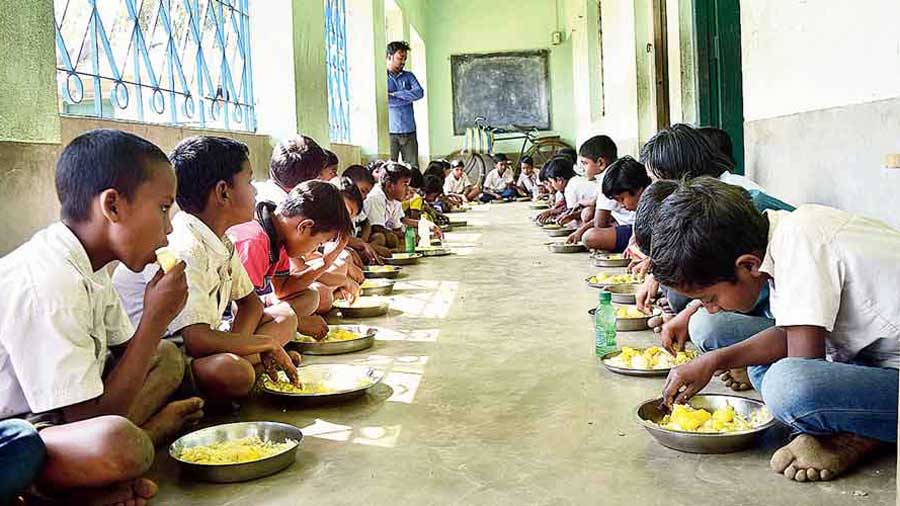India was never markedly kind to its children. But society’s callousness seems to have been overtaken by the government, which appears to be uninterested in maintaining even a veneer of concern. It announced an increase of 9.6 per cent in the material cost of school midday meals up to Class VIII. This is after two years that were unprecedentedly difficult for teachers tasked with implementing the scheme. Yet the increase is so stingy as to be a mockery, according to a teacher in West Bengal. Its value is less than a rupee for a child’s meal, coming to Rs 5.45 for a student in the primary class and Rs 8.17 for one above it. Apparently, children’s meals need have nothing to do with prices in the market — of lentils or vegetables or eggs. They can eat whatever is available within the given budget. Is it the government’s concern that India’s children with stunted growth make up approximately one-third the number in the whole world, or that the Global Hunger Index (2021) places India 101st among 116 countries by virtue of children’s undernourishment, stunted growth and mortality?
As it is, the midday meal scheme, although one of the most fruitful approaches in linking nutrition and education, is plagued by problems ranging from corruption — stealing children’s food — to caste discrimination, the latter relating to the caste of cooks on the one hand to children’s caste on the other, with teachers discriminating between them in seating and the portions served. The programme, therefore, demands additional attention, even in terms of principle, because the right to food and the right to education are integrally linked to the right to health, and they make up, together, the right to a happy and productive life. The powerful scheme with a practical name, however, has acquired an orotund identifier: the Pradhan Mantri Poshan Shakti Nirman. The impressive name may obscure the fact that the allocation for children’s nutrition in the Union budget of 2021-22 dropped by 18.5 per cent in comparison to the previous year although the total budget increased by 14.5 per cent. Perhaps the prime minister — without whose imprimatur children cannot have their meals — believes that India will lead the world with its army of wasted, undernourished, fragile children. Or maybe he and his men are enough.











